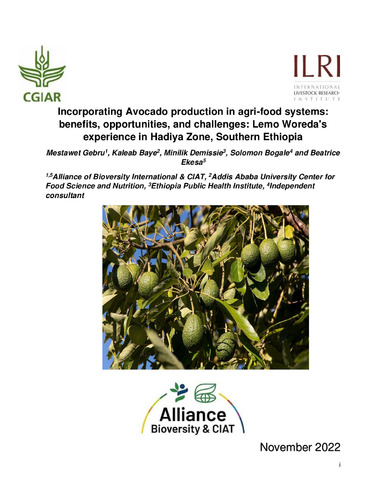Incorporating Avocado production in agri-food systems: Benefits, opportunities, and challenges: Lemo Woreda's experience in Hadiya Zone, Southern Ethiopia
Avocado has become a significant alternative crop in Ethiopia because of the country's high potential agro-ecologies, domestic need, and export market. To support the sector, however, the level of production, the state of consumption, and the market chain are not well understood. Therefore, the purpose of the study was to determine whether integrating avocado in the agri-food system may have any benefits considering the value chain among small-holder farming communities. A qualitative study was conducted in the Limo woreda SNNP region of Ethiopia. Ten focus group discussions with small-holder farmers and seven key informant interviews with health extension workers, project coordinators, and development agents were conducted. The study identified water shortages, the frost, and the meddling of wild/domestic animals and pests as the main environmental limiting factors for unsuccessful production. Moreover, grafting knowledge gaps, seedling skill gaps, and poor plant management were among the main individual limitations mentioned. The participants also listed different economic, household-level consumption, and health benefits. However, the small amount of production in the household and in the village, especially during the dry season, is one of the factors limiting regular consumption. Furthermore, market linkage was mentioned as the main limitation of the avocado market, especially during high production seasons. In general, the study revealed that avocados are being regarded as one of the local agricultural goods and that this has altered household consumption patterns. However, the establishment of a market system for avocado sales should be improved for the benefit of small-holder farmers.
Key word: Avocado benefit; Avocado Production, Challenge and opportunity, consumption, market linkage, small-holder farmer, Ethiopia

